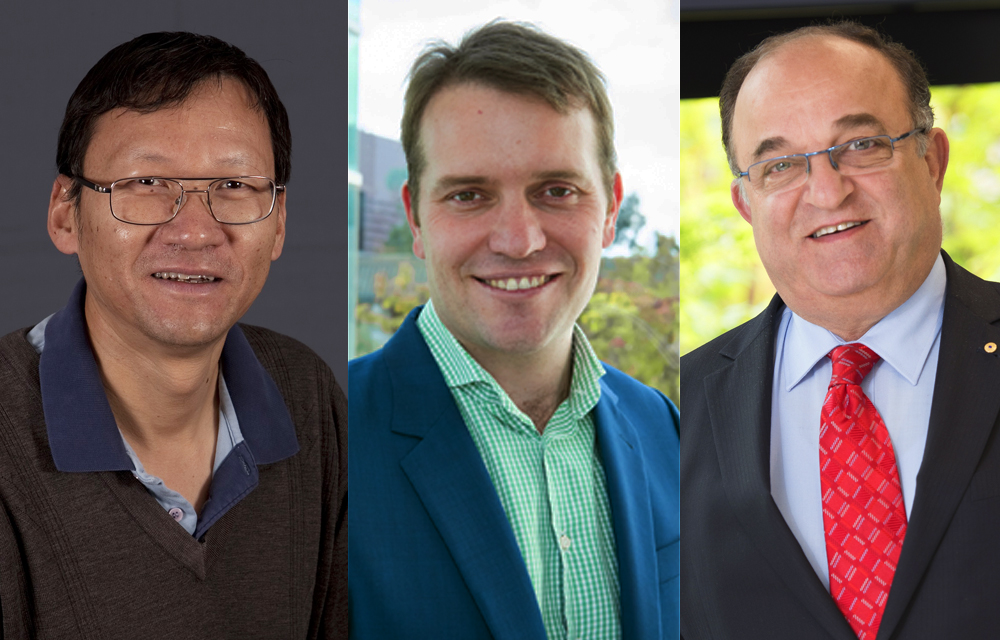Suzanne Lazaroo
4 June 2019: Perhaps you would like to march on the frontlines of the big data revolution? Become a go-to cybersecurity expert creating an inviolable system? Enable the Internet of Things (IoT) to expand its amazing connective potential. Or catalyse change, progress and ideas as the liaison point between IT and business systems?
The University of Canberra’s brand-new IT specialisations for undergraduate and postgraduate courses are geared to keep graduates ahead in a technoscape where the only constant is change.
And with both a big picture perspective and the possibility of tapping into in-demand niche areas, the new IT degrees and specialisations are opening up a world of knowledge, skills and potential.

UC’s new robotics specialisation will put graduates on the razor edge of a very current IT sector – and one which will only grow in the future.
Crucially, these specialisations have been developed according to industry needs and feedback, with experts from industry giants and government weighing in on who and what they need – now and in the future.
“Graduates need to understand what digital transformation means, and how technology operates in a business context – this allows us to onboard new recruits without lengthy retraining,” said George Yacoub, Public Sector Director of Pegasystems.
“The new specialisations of Cybersecurity, Artificial Intelligence (AI) and Robotics, Data Science, and Cloud Computing and IoT were introduced to meet industry demand, and to make the courses even more relevant and responsive to today’s IT landscape,” said Dr Wanli Ma, Head of the School of Information Systems and Technology, at the Faculty of Science and Technology.
While specialising in Cybersecurity will equip graduates with computer crime-fighting skills and digital forensic know-how, specialising in AI and Robotics puts them on the razor edge of technology, exploring everything from humanoid robots to mobile robotic platforms.

It’s not just about academic learning – hands-on experience with professional internships will enable graduates to segue seamlessly into the industry.
Data scientists are in increasing demand worldwide, as the generation and influx of big data makes their skills particularly crucial in the digital economy. This specialisation includes social informatics, data analysis related to social media platforms and the data they generate.
“The Data Science specialisation will allow graduates to analyse vast amounts of data and translate them into practical insights for the private and public sectors,” said Dr Luke Nguyen-Hoan, Assistant Professor in Information Technology and Systems.
Skilled Cloud Computing and IoT experts are already the architects driving change, expanding the capabilities and potential of the Future Internet.
“Over the last two years, these have been the specialisations all industry players in our Course Advisory Groups said they were looking for,” Dr Ma said.
“We are looking at equipping graduates with ‘T-shaped skills’ – that is, helping them to build a skills repertoire with both breadth and depth.”

The University of Canberra’s Dr Wanli Ma, Head of the School of Information Systems and Technology, Hamish Holewa, Chief Operating Officer of CSIRO’s Atlas of Living Australia, and George Yacoub, Public Sector Director of Pegasystems of Pegasystems all believe in the huge value of industry-led specialisations.
The courses are therefore designed to be broad enough in scope that students can build a solid knowledge base, including business and communication systems.
Hamish Holewa, Chief Operating Officer of the Atlas of Living Australia, CSIRO said that the organisation was constantly looking for well-rounded IT graduates, who have specialised skills coupled with an understanding of the larger context in which the IT industry operates.
“This includes an understanding of issues of privacy, legislation, security and public perception,” he said.
As a member of the Course Advisory Groups, Mr Holewa was pleasantly surprised that the University’s industry consultation sessions involved discussion about how diversity and social factors are changing the face of the IT industry, and how those factors can be incorporated into the University’s courses.
“A lot of IT systems are fairly homogenous, rather than catering to diverse groups,” he said. “In order to move into the future, we need to discuss cultural, social and linguistic diversity, and incorporate that into the systems.”

The Cybersecurity specialisation will equip graduates with computer crime-fighting skills and digital forensic know-how.
Once they have built a strong foundation, graduates can then choose to either widen that knowledge base further, or drill down to build depth in the particular specialisations.
With the pervasive nature of IT affecting almost every aspect of human life, Dr Ma thinks that UC’s IT graduates will be limited only by their imaginations.
“You can use AI to study classical literature, to find out what word combinations Shakespeare favoured, to analyse how a cyclist moves or a swimmer’s turn time,” he said.
“Sift through the billions of transactions conducted daily to figure out the relationship between people and their purchase decisions. These are just the possibilities today – tomorrow is another story.”
Forecasting emerging tech trends in the near and far future has been a cornerstone in the curriculum update.
“We’re seeing a definite trend for new research methods based on AI and machine learning, as well as strong demand for cloud computing,” said Mr Holewa.

Specialising in the IoT will enable graduates to help create the Future Internet.
Dr Ma is confident that the new specialisations will see graduates in serious demand for the next 10 years; they build on an already stellar employability rate for the University’s IT graduates.
“In fact, a significant number of our domestic students are hired midway through their courses,” Dr Ma said.
“This is because our teaching philosophy is to inspire and encourage students to think of themselves as professionals in training, rather than just being here to collect stamps on an academic passport.”
University of Canberra IT graduates develop skills at three levels: core discipline skills in IT, information systems or engineering, the constantly evolving, industry-focused specialised skills, and professional or “soft” skills such as communications and project management.
“We need people who can communicate and work with clients to co-design and develop products and solutions that aren’t off the shelf,” Mr Holewa said. “I think that having strong technical skills and complementing them with the communication skills and understanding to translate them into real life, is invaluable.”
“Because of this approach, our graduates are world-ready and future-ready, not just work-ready,” said Dr Ma.
Click here to explore the University of Canberra’s new IT degrees and specialisations.


